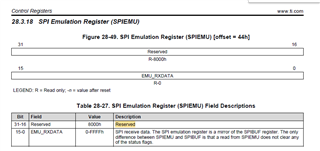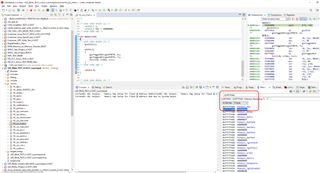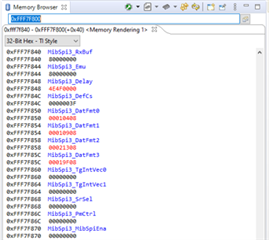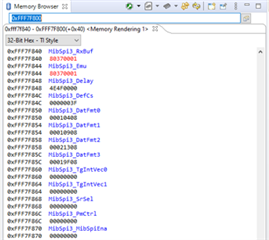Other Parts Discussed in Thread: TMS570LC4357
Tool/software:
With reference to SPNU515C
The field description for SPI Emulation Register (SPIEMU) states the following:
Value 8000h
Description Reads return 0. Writes have no effect.
1. The value and description contradict one another.
2. The value that I am actually seeing when reading the upper 16 bits is 8037h
What is the expected value when reading bits 31-16 of the SPI Emulation Register (SPIEMU)?





